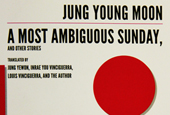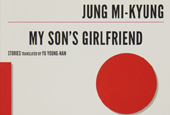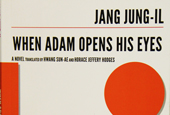-
 Korea.net's 24-hour YouTube channel
Korea.net's 24-hour YouTube channel- NEWS FOCUS
- ABOUT KOREA
- EVENTS
- RESOURCES
- GOVERNMENT
- ABOUT US
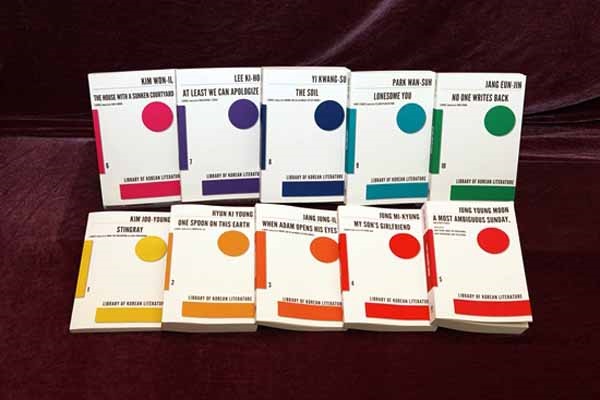
The Library of Korean Literature series is a collection of ten Korean novels published in English in the U.S. last year. (Photo courtesy of the Literature Translation Institute of Korea)
The sixth volume of the ten-part Library of Korean Literature series is the 1988 full-length novel “The House With A Sunken Courtyard,” by Kim Won-il. The book tells the story of a thirteen-year-old boy and his family.
The boy lives from hand to mouth with his mother, sister and younger brother, amid the absence of his father who left the family and defected to North Korea during the Korean War (1950-53).
The author himself was raised by a single mother, as his father did actually defect to the North during the war. Accordingly, this work can be seen as an autobiographical novel that reflects the author’s childhood spent as a fatherless young boy.
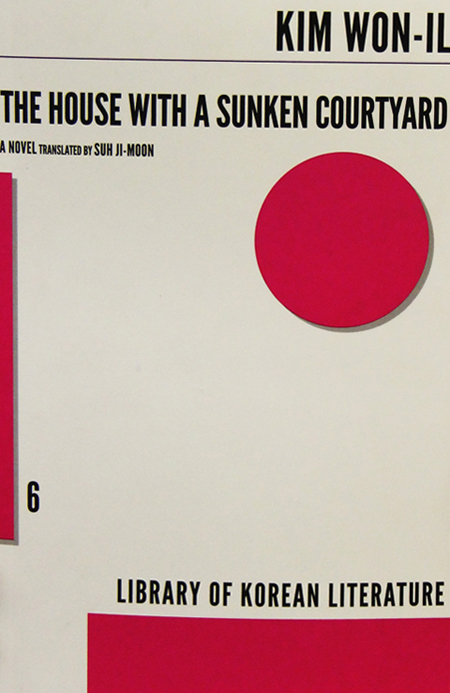
Kim Won-il’s novel “The House With A Sunken Courtyard” was published in English last year.
The story begins with a description of a family living in a house with a sunken courtyard, hence the title, along with six other families. The boy, telling the story in the first person, explains how his mother’s main source of income is making party outfits and how his older sister is in her third year of middle school. His younger brother is in primary school.
The house is inhabited by war refugees from Gaeseong and Pyongyang, two cities in North Korea, and from Cheorwon, a city in Gangwon-do (Gangwon Province), including the owner of the house who made all his money running a bread factory.
The mother, who also serves as the father in the family, is strict with the children and has a stoic attitude, enough to force her son to be a newsboy. Feeling bitter and angry at his mother’s heartlessness, the boy thinks that he might be an orphan or that perhaps she is his stepmother, not his biological mom.
His life is struck with poverty and hunger by the war-torn situation and, feeling constrained and estranged by the hardhearted mother, he dares to run away from home. He ends up, however, being brought back home by his mother who finds him. As he swallows the warm broth that his mother makes for him, he feels a lump in his throat, realizing now that, “She is my real mother.”
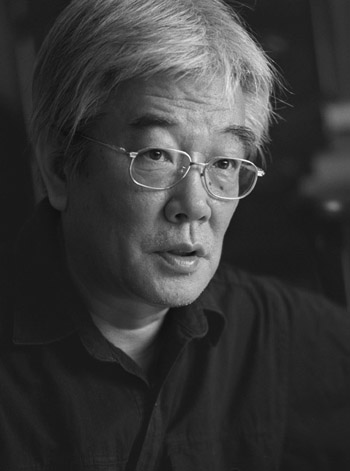
Author Kim Won-il (Photo courtesy of the Literature Translation Institute of Korea)
According to many accounts, every single individual and element in the story, such as the single mother, the separated family and the ideological conflict between the two Koreas, captures the essence of the war-torn country as if the social situation of that time is reduced to a microcosm.
“I’ve always been determined that I would never live like my father, who abandoned his family and defected to the North,” Kim said. “However, I wanted to depict in my works this specific phase of Korean history in a sophisticated and balanced manner, where the war turned a highly-educated and intellectual person like my father into a socialist.”
Born in 1942 in Gimhae, Gyeongsangnam-do (South Gyeongsang Province), Kim Won-il got his undergraduate degree at Yeongnam University and his Master’s at Dankook University, both in Korean Literature.
He made his literary debut in 1966 with his short story “Algeria, 1961,” which won a contest sponsored by the Daegu Daily News. His works include his first collection of stories, “Soul of Darkness” (1973), as well as his full-length novels: “Today’s Wind” (1976), “Evening Glow” (1978), “Wind and River” (1985) and “The Evergreen” (1993).
Many publications have considered Kim to be a writer who represents, “literature themed on the division of Korea.”
As of last year, his novel has been available for global audiences in English.
By Sohn JiAe
Korea.net Staff Writer
jiae5853@korea.kr
Most popular
- First hearing-impaired K-pop act hopes for 'barrier-free world'
- 'Mad Max' director impressed by 'cinema-literate' Korean viewers
- Romanian presidential couple visits national cemetery
- President Yoon, Japan PM pledge better trilateral ties with US
- President, Romania pledge better defense, nuclear power ties









